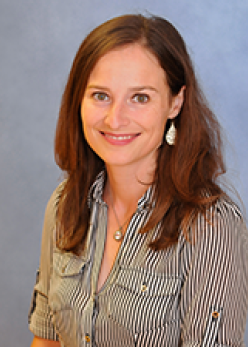Advancing Intellectual and Developmental Disabilities Research at KU
KU scientists have conducted research on intellectual and developmental disabilities, or IDD, for over 60 years. This work has improved and enriched the lives of thousands of individuals and their families. This project will enhance KU’s ability to maintain this longstanding global strength and elevate KU’s ability to address major questions in the field, such as the complex genetic, biological, and environmental factors that cause IDDs and how best to develop interventions to support individuals with IDD so that they can live their best lives. The team leading this effort is John Colombo (Psychology and the Life Span Institute), Matt Mosconi (Clinical Child Psychology and the Life Span Institute) and Karrie Shogren (Special Education and the Life Span Institute).
Project Goals
We will recruit two new faculty investigators with expertise in omics sciences and biomedical informatics. KU has nationally recognized strengths in biobehavioral assessment, education, and community engaged intervention research for people with IDDs, but faculty expertise is missing in newer research fields focused on the underlying biology of IDDs. Omics sciences refer to disciplines focused on identifying and characterizing biological causes of clinical conditions such as IDDs. Biomedical informatics refers to the research pursuit of integrating large sets of biomedical information (e.g., health records) to study clinical populations. These two disciplines offer important and novel approaches for understanding the complex causes of IDDs and informing the advancement of more effective interventions. With these new faculty, we will be able to develop innovative, multidisciplinary (i.e., gene to brain to behavior to supports) research projects that can have a significant and direct impact on the lives of individuals with IDDs. These hires also will allow KU to compete for larger, national-level interdisciplinary research network awards that are a major focus of federal funding agencies (e.g., NIH, IES).
The conduct of rigorous, large-scale and multidisciplinary research on IDDs requires tremendous effort in recruiting individuals with IDD and understanding their disabilities and support needs. This effort is best organized through shared services including team members with specialized expertise in IDDs. Through separate planned hires, we will 1) expand the scope and capacity of KU IDD research registries and 2) provide direct support for conducting diagnostic and clinical assessments in IDD research using gold-standard measurement approaches. These efforts will increase the pace and quality of KU IDD research and external award proposals in highly cost-effective ways. These activities also will increase our ability to engage individuals from marginalized communities in our research as this will be a major focus in our registries and outreach efforts.
KU’s community of IDD scientists currently work within separate (but overlapping) groups. For KU to maintain its national strength in IDD research, we will have to leverage the expertise from these diverse groups. This Research Rising award aims to develop a Center of Multidisciplinary IDD Research and Training Excellence that will enhance the quality and quantity of team science by developing mechanisms for promoting collaboration among our scientists and providing direct support for promising new interdisciplinary studies. We also aim to support early career scientists studying IDDs at KU by advancing professional development seminars, grant boot camps and pilot funding that will facilitate more competitive external award proposals.
Research Team

John Colombo

Matthew Mosconi

Karrie Shogren

Peter G. Smith

Olivia J. Veatch